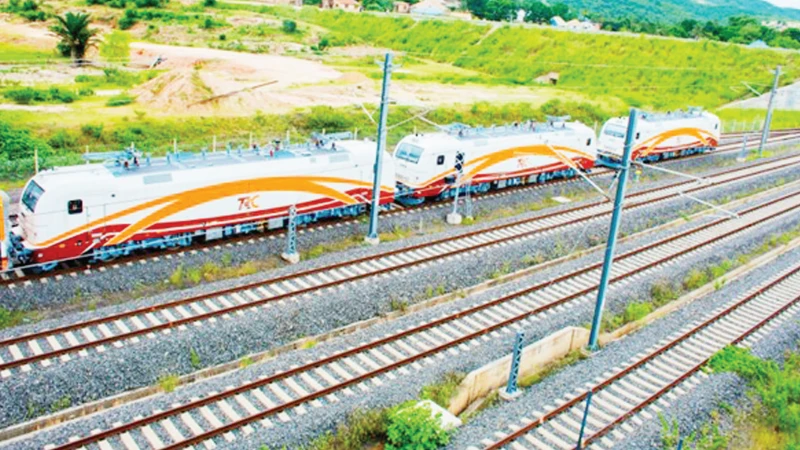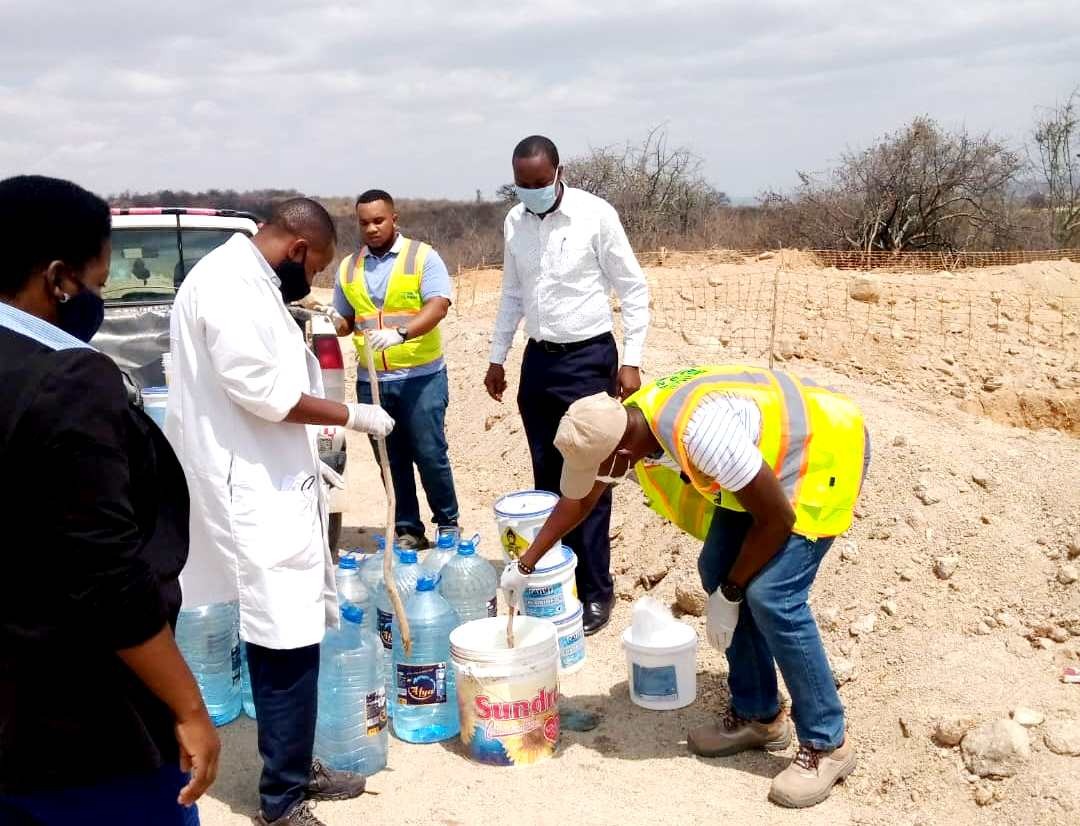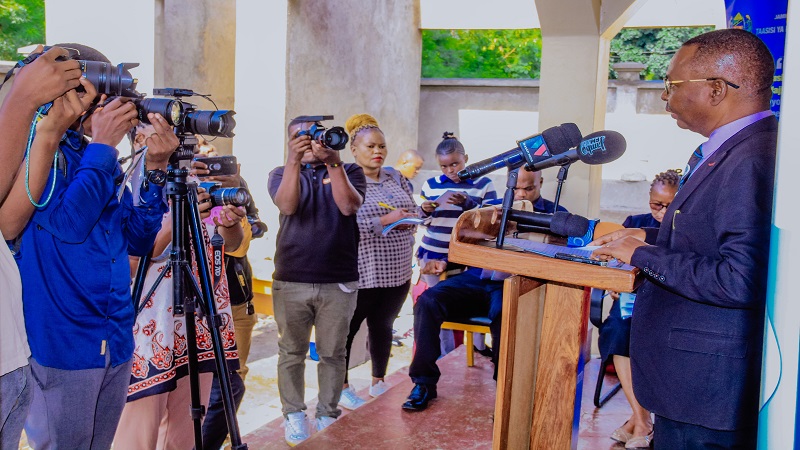SGR: A landmark achievement driving Tanzania’s economic development

WHEN the Tanzania Railways Corporation (TRC) inaugurated its electric train service between Dar es Salaam Dodoma in June 2024, no one could anticipate the remarkable milestone it would achieve in just four months.
Achieving remarkable feat of transporting over one million passengers in such a short span—double the annual figure of its predecessor, the old diesel-powered system—the electric rail service has revolutionized Tanzania’s transport landscape.
This accomplishment signifies more than a leap in passenger numbers; it embodies a transformative shift toward modern, sustainable infrastructure, setting a powerful example of eco-friendly development in action. This achievement is more than just a number; it is a testament to the nation's commitment to sustainable development and modernization, aligning with global efforts to combat climate change while enhancing mobility for its citizens.
The significance of this accomplishment extends beyond transportation statistics, weaving a narrative of economic progress, environmental responsibility and an improved quality of life for Tanzanian Under the old diesel system, Tanzania’s railway struggled with inefficiency, delays and a capacity far below the demands of its growin population.
The transition to electric trains marked a bold and transformative leap for the nation, addressing longstanding challenges of inefficiency, delays, and limited capacity. Offering unmatched speed, reliability, and comfort, the new train has swiftly become a preferred choice for a diverse range of passengers, from daily commuters to long-distance travelers. It redefines rail transport, seamlessly blending modern convenience with sustainability, while addressing the nation’s growing mobility demands.
With the capacity to transport up to 400 passengers per trip, electric trains are alleviating congestion on roadways and reducing travel time between Dar es Salaam and Dodoma to under four hours—a drastic improvement that has made rail travel an attractive option for many. This efficiency has ripple effects, including enhanced productivity, as passengers can travel faster and more reliably than ever before.
By reducing travel times and offering a dependable schedule, the electric train service empowers workers, students, and entrepreneurs to optimize their daily routines, connect with opportunities, and contribute more effectively to the nation's economy. One of the most profound impacts of the electric rail system lies in its environmental benefits, marking a significant step forward in Tanzania’s commitment to sustainability.
Although diesel-powered trains are still operating, completion of this electric rail project signals a future where such polluting systems may no longer be necessary. Through transitioning to electric trains, the system drastically reduces harmful emissions, safeguarding the environment and addressing climate change. Powered by renewable energy sources such as hydropower, electric rail embodies a vision of greener, cleaner transportation that could render diesel trains obsolete, aligning with global efforts to protect our planet.
Diesel trains, long the backbone of Tanzania's railways, remain significant contributors to air pollution and greenhouse gas emissions. In stark contrast, electric trains produce zero on-site emissions, presenting a cleaner and more sustainable alternative. This shift directly supports Tanzania’s commitment to achieving it climate goals under the Paris Agreement, underscoring the nation’s dedication to environmentally responsible development.
Estimates from TRC indicates that the shift electric rail has already prevented the emission of approximately 50,000 tonnes of carbon dioxide in its first four months of operation. This reduction is equivalent to taking thousands of cars off the road, a crucial step in reducing the country's overall carbon footprint. Tanzania’s embrace of electric rail sets a powerful example for other African nations to follow in adopting ecofriendly transportation solutions.
This bold initiative demonstrates how modern infrastructure can drive progress while addressing environmental challenges, showcasing a model of sustainable development that prioritizes both efficiency and ecological responsibility. From a social and economic perspective, the electric train service is a transformative force that will bridge the gap between rural communities and urban centers once fully implemented. Affordable and accessible rail transport offers a lifeline for farmers and traders, enabling them to move their produce and goods to market more efficiently.
Along the railway line, improved connectivity has a profound impact on Tanzania’s agricultural sector, a cornerstone of the nation’s economy Currently operating within Dar es Salaam, Morogoro, Dodoma and Coast regions—the electric train service still covers only a small part of Tanzania. However, once fully operational, the railway network will expand to encompass the central and lake zones, thus broadening its reach.
This expanded connectivity will enhance access to markets for rural producers, reduce transport costs, and open up new opportunities for economic growth. The achievement of transporting over one million passengers in just four months is not merely a milestone; it is a turning point in Tanzania's rail transportation history. The electric train service symbolizes a vision of progress that blends modernity with sustainability, offering a model for how infrastructure can be developed responsibly.
This success story also highlights the importance of government commitment and public-private partnerships in driving large-scale projects. The electric rail system was realized through significant investment in infrastructure, signaling, and technology—investments that are now paying off in the form of increased connectivity and environmental benefits.
As Tanzania celebrates thi milestone, it also sets the stage for broader conversations about the role of sustainable transportation in shaping the future. The success of the electric rail system demonstrates that infrastructure development need not come at the expense of the environment. On the contrary, when executed thoughtfully, such projects can align economic growth with ecological stewardship.
For passengers who now travel swiftly and comfortably between Dar es Salaam and Dodoma, electric trains are more than a convenience—they are a symbol of progress. For the country, this milestone is a stepping stone toward a future where modernization and sustainability walk hand in hand. Tanzania’s electric rail system is not just transporting people; it is transporting the nation toward a greener, more prosperous tomorrow.
Top Headlines
© 2025 IPPMEDIA.COM. ALL RIGHTS RESERVED

























